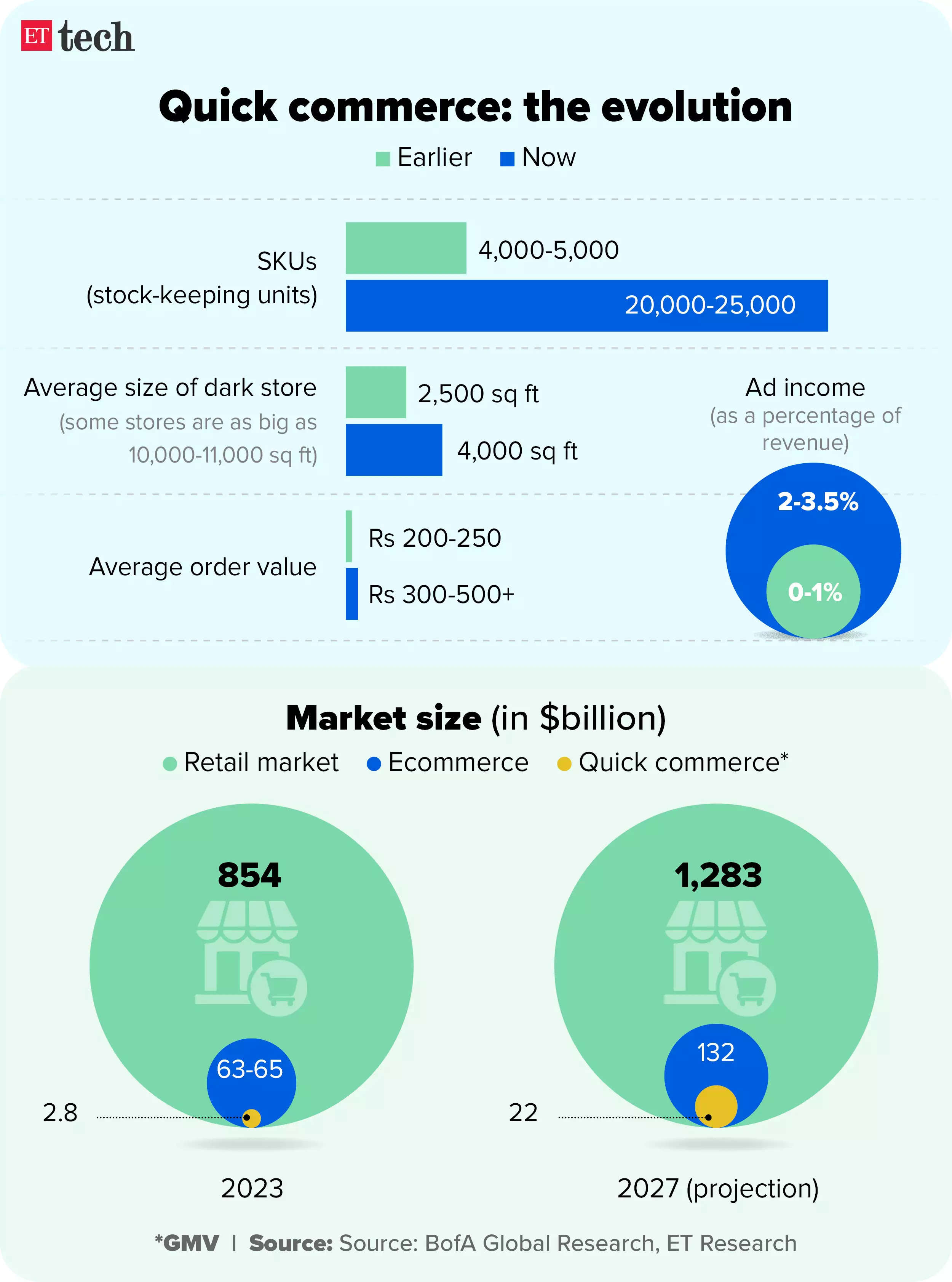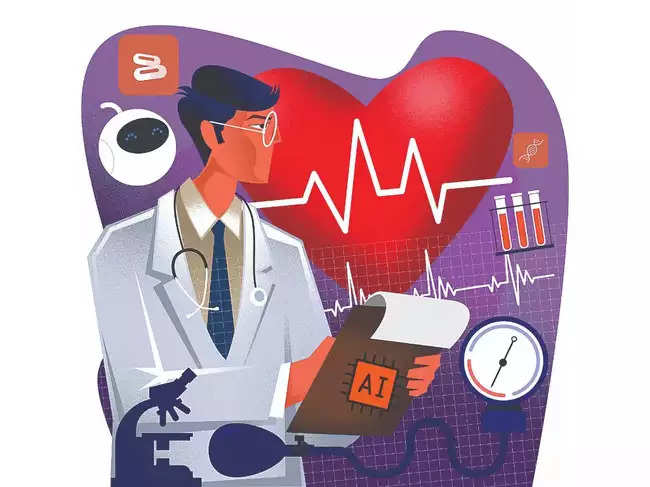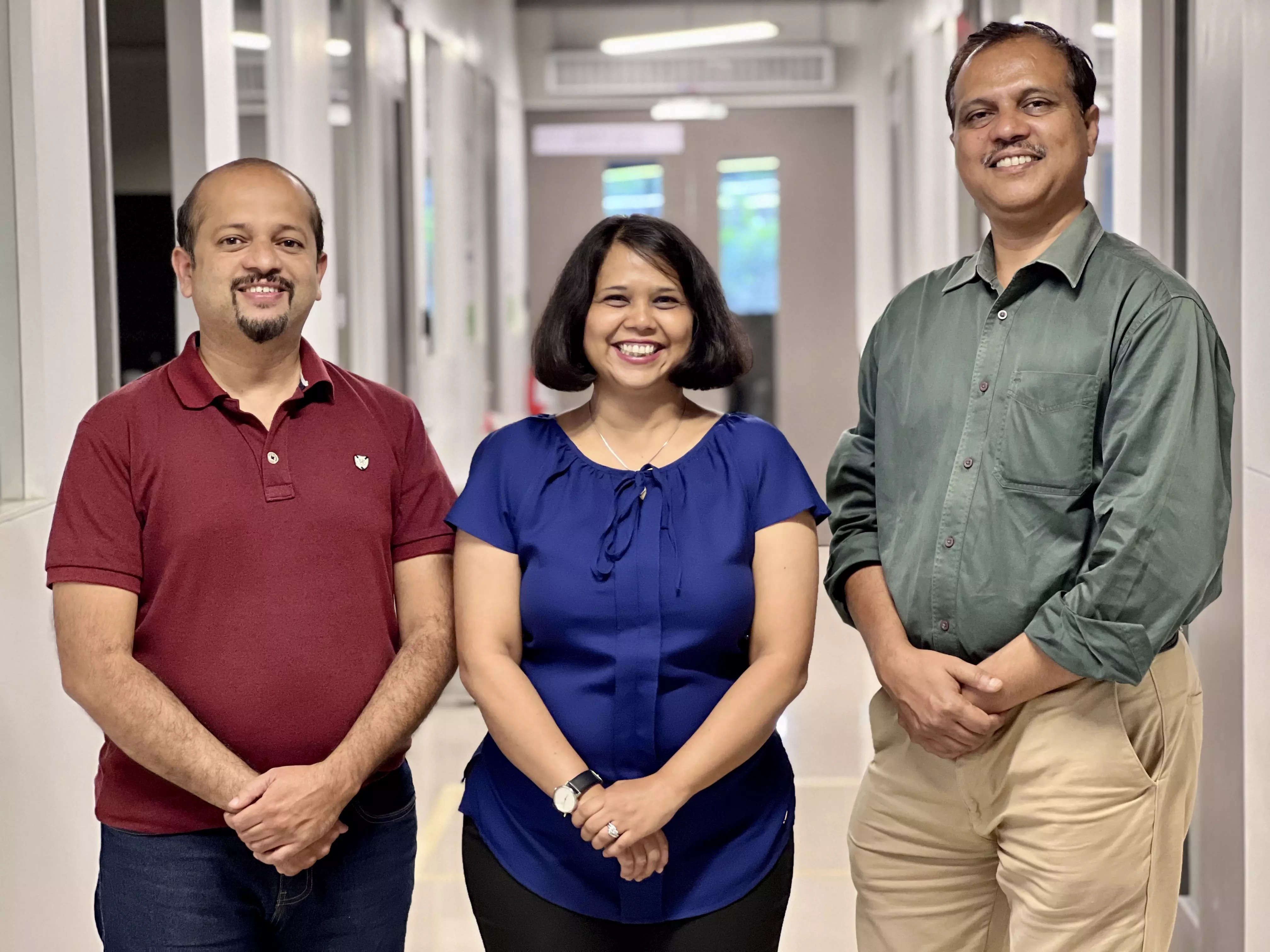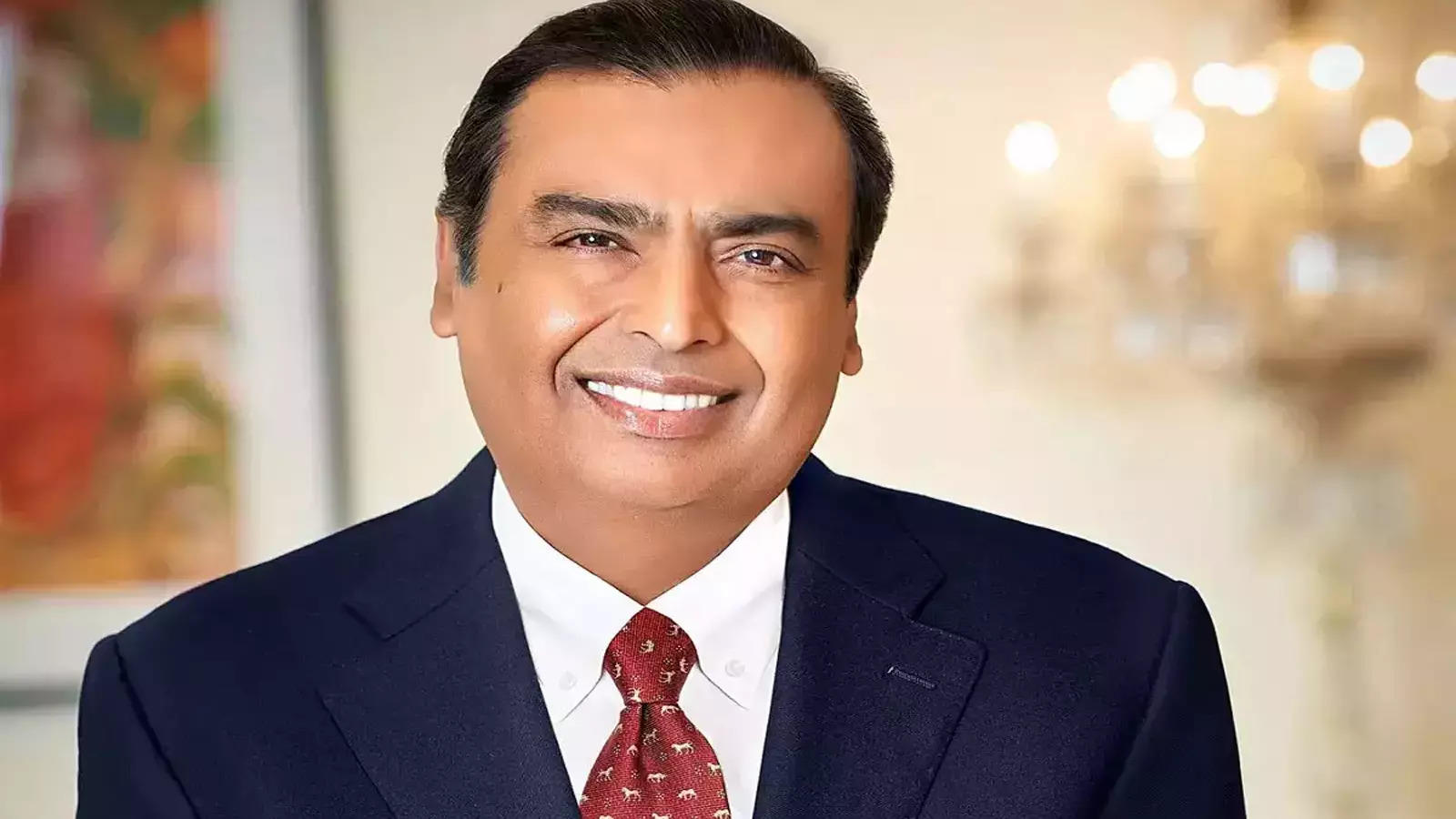
Also in this letter:
■ AI in healthcare
■ ETtech Done Deals
■ Cognizant’s discriminatory practices
Reliance Retail targets quick commerce market, challenging Blinkit, Instamart
Reliance Retail has initiated efforts to enter the thriving quick commerce market, further intensifying competition between Zomato-owned Blinkit, Swiggy’s Instamart, Zepto and Tata-owned BigBasket.
About the foray: Reliance has started offering quick commerce services in select areas in Navi Mumbai and Bengaluru through its ecommerce platform JioMart.

It will initially sell grocery items from its retail stores totaling about 3,000 nationwide, eventually adding value fashion and small electronic products such as smartphones, laptops and speakers, a senior executive said.
All orders will be fulfilled from its network of stores, including Reliance Digital and Trends.
Zoom in: The retail arm of Reliance Industries plans to rapidly scale up its quick commerce venture pan-India by this month-end to deliver most orders in 10-15 minutes and the rest within 30 minutes, the executive said. The company will use its acquired logistics service Grab for the fulfilment.

Reliance, however, doesn’t have any plan to set up dark stores or neighbourhood warehouses, unlike other quick commerce operators, the executive said.
Contex: Quick commerce has seen a massive spike in demand. For fast-moving consumer goods companies, quick commerce is the fastest-growing channel, accounting for 30-35% of total online sales.
Read our in-depth coverage on the rise of quick commerce in India:
ETtech In-depth | AI diagnosis is just what the doctor ordered

In India, where the existing healthcare system faces enormous pressure, AI can be a big help as it can minimise oversight, make diagnostics more accurate, support clinician (clinical?) decision-making, answer patient queries, and democratise healthcare at large.
Use cases in healthcare: While pharma firms like Pfizer and DRLare increasingly using AI for drug discovery or for monitoring adverse effects, large hospital chains are leveraging AI tools to help predict the risk of various diseases in patients.

Apollo Radiology International is using Google’s AI models to conduct 3 million free AI-powered screenings for TB and lung and breast cancer in underserved communities across India.
Data decoded: As per WHO data, the density of doctors (number of doctors per 10,000 population) in India stood at 7.3 in 2020, compared to 17.2 worldwide, a decline from 12 in 1991. By contrast, China,had 25 doctors per 10,000 people as of 2021, up from 11 in 1990.

The figures for developed countries such as the US, UK, Sweden and Australia stand at 36, 32, 52, and 40, respectively.
Healthcare players and tech companies alike are investing in developing innovative AI solutions to address this gap.
Quote, unquote: “AI is a tool and an enabler for healthcare solutions,” Bakul Patel, senior director, global digital health strategy and regulatory at Google, told us.
He, however, added that these solutions must be tailored to the local context, understanding local structures rather than imitating what has been done elsewhere.
Infographic Insight | AI: the right prescription for healthcare?

Access to healthcare is a major challenge not just in India, but globally too. However, advancements in technology, especially AI, can play a significant role in improving disease diagnostics and patient care.
A recent report by Bessemer Venture Partners says AI in Healthcare is at a tipping point driven by digitisation of healthcare records and years of research resulting in products. And companies and VCs are taking note too. Another report noted that one in four healthcare investments has been in AI-linked firms, total investment being $2.8 billion.

Startups raise $10 billion in July-September quarter, down 15% QoQ, says 1Lattice

Startups raised $10 billion in the July-September quarter, marking a 15% decline in total funding compared to the previous quarter, according to a report by market intelligence firm 1Lattice.
The number of deals also fell by 30%, dropping from 318 in the Q2 (April-June quarter) to 229 in Q3.
Quote, unquote: “Despite a positive long-term outlook, Q3 has seen a 30% decline in deal volume, coupled with a 20% increase in average deal size, signalling a shift toward high-ticket dealmaking in quality assets,” said Abhilasha Jaju, director at the firm.
Recap: PhysicsWallah on September 20 closed a $210 million funding round, marking the largest fundraising for a firm in the troubled edtech sector post Covid. Rapido raised $200 million in a financing round led by existing investor WestBridge Capital, becoming a unicorn with a $1.1 billion valuation.
ETtech Done Deals

L-R, Amit Shinde, Renuka Diwan and Shekhar Bhosale, cofounders, BioPrime
BioPrime raises $6 million: Biotech startup BioPrime has raised $6 million in a funding round led by Belgium-based Edaphon, with equal participation from existing investors Omnivore and Inflexor. This marks Edaphon’s first investment in Asia.
Road safety startup Nayan Tech raises $2 million: Nayan Tech, an artificial intelligence (AI)-based startup focusing on road safety and traffic monitoring solutions, on Monday said it has raised $2 million from investors led by Beenext.
Andrew Ng’s fund invests in AI healthcare platform Jivi: Marking its first significant investment in India, AI Fund, a California-based venture studio led by computer scientist and artificial intelligence research pioneer Andrew Ng, has invested in AI healthcare platform Jivi.
Cognizant faces US court verdict for discriminatory practices

A US district court has found global IT giant Cognizant Technology Solutions guilty of engaging in discriminatory conduct towards non-Indian workers to prefer H1-B visa holders.
Court verdict: The company should pay punitive damages to compensate employees who suffered harm, the court said. However, Cognizant plans to appeal against the verdict.
Tell me more: The case Christy Palmer vs. Cognizant was initially filed in 2017 and addresses plaintiffs’ claims dating back to 2013. The charges have yet to be quantified, and sources close to the company have confirmed them.
Company statement: “We provide equal employment opportunities for all employees and have built a diverse and inclusive workplace that promotes a culture of belonging in which all employees feel valued, are engaged and have the opportunity to develop and succeed,” Cognizant said in an emailed statement to us.
Today’s ETtech Top 5 newsletter was curated by Riya Roy Chowdhury in Bengaluru and Megha Mishra in Mumbai.







































